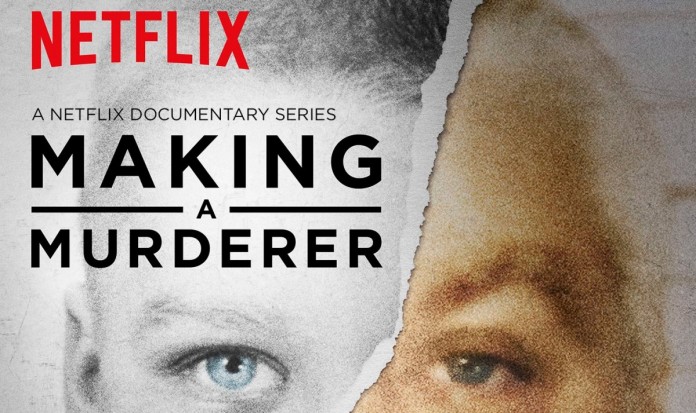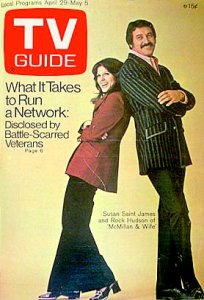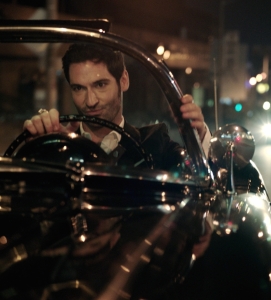Compared to many other subjects I write about, I don’t write about Donald Trump very often. I don’t follow him on Twitter. I don’t watch Fox News (I cancelled my Shaw Cable TV more than three ago, back in July 2017, writing two months later on Sept. 5, 2017, “Two months post-cable television (and therefore post CNN and Donald Trump) and $150 to the good (me, not Shaw).”
Not being a complete media recluse, however, as there is still the internet, I do know The Donald – a.k.a. President Donald Trump – accepted the Republican Party’s re-nomination for president last night at the party’s national convention, promising to “rekindle new faith in our values” and rebuild the economy once more following the COVID-19 pandemic. He also said, being gathered on the massive South Lawn at the White House, known as the “People’s House,” they cannot help but marvel at the “great American story.” This is a common and recurring theme in American history. Earlier this month, I completed my eleventh Hillsdale College online course, titled “The Great American Story: A Land of Hope,” taught by Wilfred M. McClay, the G.T. and Libby Blankenship Chair in the History of Liberty at the University of Oklahoma, and co-director of the Center for Reflective Citizenship at the University of Tennessee at Chattanooga.
A little more than four years ago, as President Donald Trump was then running for president as Citizen Donald Trump, a man best known to many Americans in 2016 as the host for the first 14 seasons of The Apprentice, the American reality television program created by British-born American television producer Mark Burnett (of Survivor fame) that judged the business skills of a group of contestants, I wrote my first significant blog post about Trump on July 17, 2016 in a piece headlined, “Demagoguery and demonization pass for discourse and civility vanishes from the public stage” (https://soundingsjohnbarker.wordpress.com/2016/07/17/demagoguery-and-demonization-pass-for-discourse-and-civility-vanishes-from-the-public-stage/). The Apprentice, which I didn’t canvass at the time, was produced at Trump Tower in New York City between 2004 and 2015. Episodes ended with Trump eliminating one contestant from the competition, with the words “You’re fired!”
Interestingly, while the headline, “Demagoguery and demonization pass for discourse and civility vanishes from the public stage” may appear to be contemporaneous with Trump and Trumpland today, and certainly could be, it wasn’t written that way exactly:
“Consider the headlines for Sunday, July 17, 2016: CBS News is reporting in a July 16 its headline “W.Va. lawmaker: Hillary Clinton should be ‘hung’ on National Mall.” The story goes onto say, “A member of the West Virginia House of Delegates is causing a stir after tweeting that Hillary Clinton should be ‘hung on the Mall in Washington, DC.
“‘CBS affiliate WOWK-TV reports that Michael Folk, a Republican legislator who is also a United Airlines pilot, posted a tweet Friday night saying: ‘Hillary Clinton, you should be tried for treason, murder, and crimes against the US Constitution… then hung on the Mall in Washington, DC.
“Meanwhile, Charles P. Pierce has a July 14 piece in Esquire magazine, headlined, “This Isn’t Funny Anymore. American Democracy Is at Stake.” The subhead reads: “Anyone who supports Donald Trump is a traitor to the American idea.” Pierce writes at the top of the story that not “until Wednesday did we hear clearly the echoes of shiny black boots on German cobblestones.”
“Really?
“Is this the best we can do in terms of civics and public discourse in 21st century America? Call anyone we disagree with a traitor and perhaps for extra outrage allude to Hitlerism and Nazism? Is demagoguery the only currency we traffic in for what passes as ideas?
“We stand at a dangerous international moment in history when an intersection of events conspire to resurrect Fascism on a scale not seen since the 1930s.”
In retrospect, I think both the headline and story have held up well over four years. I also wrote at the time:
“If Donald Trump wins the presidency in November, the world won’t end. I may not much like a Trump presidency, but the Supreme Court and Congress will not be dissolved [although Trump will probably make several nominations for upcoming vacancies on the bench that will make me wish the court had been dissolved. But that’s OK; Republican life appointments to the highest court in the United States often prove over time to be stubbornly independent, demonstrating you couldn’t have asked more from a Democratic appointee. It’s kinda complicated.]
“Trump’s also unlikely to push the hot-war nuclear button, should he find himself ensconced in the Oval Office next January. Want to know what was really dangerous? The dance Democratic President John F. Kennedy, the living Legend of King Arthur and Camelot, had with Soviet premier Nikita Khrushchev during the Cuban Missile Crisis of October 1962. That was the almost the end of the world as you knew it. Right then and there. Not Donald Trump hyperbole.
“There are plenty of examples in recent American history before where the crème de la crème cluck their tongues in displeasure at the electoral wisdom of the hoi polloi [think Brexit for the current British equivalent.] So what? Minnesota didn’t wind up seceding to Northwestern Ontario and amalgamating Duluth with Kenora when pro wrestler Jesse Ventura was elected and served as governor of Minnesota from January 1999 to January 2003.
“California survived when Arnold Schwarzenegger, the Austrian-born American professional bodybuilder and movie actor wound up getting himself elected to serve two terms as governor of California from November 2003 until January 2011.
“And speaking of California, an earlier Republican governor, Ronald Reagan, also a movie actor, went on from the statehouse to the White House, elected to two terms as president between January 1981 and January 1988. Each time – when Reagan, Ventura and Schwarzenegger were elected – Henny Penny cried out the sky was going to fall. It didn’t.
“I was living in Somerville, Massachusetts in November 1980 when Ronald Reagan was elected president.
“I had been working as supervisor for Cambridge Survey Research where I oversaw telephone call center employees for Democratic National Committee (DNC) pollster Pat Caddell’s firm in Cambridge, Massachusetts during the 1980 Jimmy Carter-Ronald Reagan presidential election campaign.
“We lost the election. Big time. I well remember going to work a few days after, late in the afternoon, riding above ground aboard a subway car on the Red Line “T.” The November sky was a foreboding steel-gray, with leaves all fallen now from the trees. And there it was, as we headed into Harvard Yard, giant spray –painted graffiti on a cenotaph proclaiming “Ray-Gun” had been elected.
“As it turned out, Reagan did have a fondness for his Strategic Defense Initiative (SDI), nicknamed Star Wars. But the dreamed-for global missile shield didn’t come to fruition. Instead, Reagan, along with Mikhail Gorbachev, general secretary of the Communist Party of the Soviet Union, managed to end the Cold War with perestroika [restructuring] and glasnost [openness] becoming part of the everyday vocabulary of Americans by the late 1980s, rolling from their tongues as if they had been saying the two Russian words forever.
“Demagoguery, while deeply disappointing as it is being manifested by Trump and his supporters, is neither new nor fatal to American politics. It is also not surprising when people feel that politics is a rigged game they can’t possible win at under the normal rules of the political elites.”
I admit over the last four years, I have reflected many times on the line, “”If Donald Trump wins the presidency in November, the world won’t end,” and wondered if I was being too optimistic because there have been days and nights with Trump when well, Trump, is Trump. And that can indeed be a scary thing.
My friend Bernie Lunzer from back in my Newspaper Guild union days from 1997 to 2001 perhaps put it best yesterday, writing, “Central frustration – we won’t change Trumpists by laughing at them or telling them they’re stupid. I share those feelings but they don’t help. They are motivated by other things. Maybe we can’t change them because their base motivation is racism? So then they are simply enemies? We still need to do something other than acting smarter and sanctimonious. I don’t have answers. But do take this election as serious.”
This reminds me indirectly of an article Thomas Frank penned for The Guardian and published on Nov. 6, 2016 – just two days before the last presidential election (https://www.theguardian.com/commentisfree/2016/nov/06/republicans-and-democrats-fail-blue-collar-america) headlined, “The Republicans and Democrats failed blue-collar America. The left behind are now having their say.” Frank, a political analyst, historian, journalist and columnist, is also the founding editor of The Baffler magazine, and author of the 2004 book, What’s the Matter with Kansas? as well as Listen, Liberal: Or, What Ever Happened to the Party of the People? published in 2016.
Do better.
You can also follow me on Twitter at: https://twitter.com/jwbarker22



















